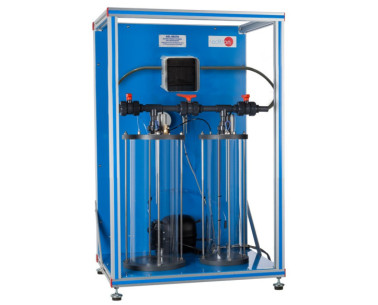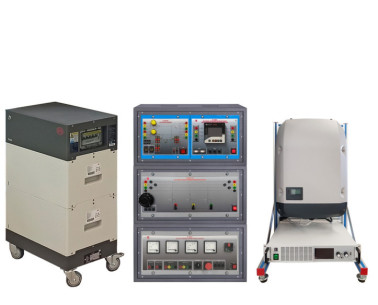- Beranda
- Produk
- 1.- FISIKA
- PROGRAM AKADEMIK
- PENDIDIKAN TEKNIS TINGGI
- TEKNIK MAKANAN
- TEKNIK TOPOGRAFI
- GEOLOGI
- TEKNIK HUTAN
- TEKNIK LINGKUNGAN
- TEKNIK EKOLOGI
- TEKNIK TEKSTIL
- TEKNIK UNTUK INDUSTRI PERTANIAN
- TEKNIK MESIN
- KIMIA
- TEKNIK KIMIA
- TEKNIK PROSES
- TEKNIK GEOLOGI, PERTAMBANGAN DAN MINYAK
- PUSAT PELATIHAN PETROLEUM
- TEKNIK NAVAL
- TEKNIK PERTANIAN
- TEKNIK ELEKTRONIK
- ARSITEKTUR
- ILMU KOMPUTER DAN TEKNIK
- TEKNIK NUKLIR
- TEKNIK OTOMATIS
- TEKNIK ENERGETIK
- PUSAT PELATIHAN ENERGI
- TEKNIK LISTRIK
- TEKNIK SISTEM
- TEKNIK PENERBANGAN
- TEKNIK LAUT DAN ILMU LAUT
- FISIKA
- TEKNIK INDUSTRI
- PUSAT INTERNASIONAL UNTUK PELATIHAN TEKNIS, PENGEMBANGAN DAN PENELITIAN
- TEKNIK BAHAN
- TEKNIK LOGAM
- TEKNIK SIPIL
- TEKNIK TELEKOMUNIKASI
- TEKNIK TERMAL
- SEKOLAH TEKNIS
- ELEKTRONIK
- KOMUNIKASI
- LISTRIK
- ILMU KOMPUTER DAN TEKNIK
- TEKNOLOGI OTOMOTIF
- TEKNIK SIPIL
- MEKANIK DAN INDUSTRI
- MEKANIK DAN LOGAM
- MEKANIKA CAIRAN
- REFRIGERASI DAN AC
- KIMIA INDUSTRI
- KIMIA
- TEKNOLOGI MAKANAN
- PERTANIAN
- AGROINDUSTRI
- PEMELIHARAAN
- MARITIM DAN PERIKANAN
- PERAWATAN PENERBANGAN
- INSTRUMENTASI DAN KONTROL
- LINGKUNGAN
- TEKNOLOGI
- TEKNOLOGI KONSTRUKSI
- TEKNOLOGI ELEKTROMEKANIK
- TEKNOLOGI DESAIN STRUKTURAL
- TEKNOLOGI PRODUKSI INDUSTRI
- TEKNOLOGI INFORMASI
- PENGENDALIAN KUALITAS
- TEKNOLOGI SISTEM ENERGI
- TEKNOLOGI PERTAMBANGAN DAN MINYAK BUMI
- TEKNOLOGI GAS ALAM
- ENERGI TERBARUKAN
- TEKNOLOGI TELEKOMUNIKASI
- TEKNOLOGI MEKANIK
- TEKNOLOGI ANGIN
- TEKNOLOGI NUKLIR
- TEKNOLOGI KONTROL PROSES
- TEKNOLOGI LAYANAN UMUM
- TEKNOLOGI LABORATORIUM
- OTOMATISASI DAN MEKATRONIKA
- TRANSPORTASI DAN LOGISTIK
- PENDIDIKAN TEKNIS TINGGI
- 2.- ELEKTRONIKA
- 3.- KOMUNIKASI
- 4.- LISTRIK
- 5.- ENERGI
- 5.1.- GRID CERDAS DAN SISTEM DAYA
- 5.2.- MIKROGRID
- 5.3.- ENERGI TERBARUKAN
- 5.3.1.- ENERGI SURYA FOTOVOLTAIK
- 5.3.2.- ENERGI TERMAL SURYA
- 5.3.3.- ENERGI ANGIN
- 5.3.4.- ENERGI LAUT
- 5.3.5.- ENERGI GEOTHERMAL
- 5.3.6.- ENERGI HIDROLIK
- 5.3.7.- BIOFUEL
- 5.3.8.- SISTEM AKUMULASI ENERGI
- 5.3.9.- SEL BAHAN BAKAR HYDROGEN
- 5.3.10.- TURBIN STEAM DAN SIKLUS RANKINE ORGANIK
- 5.3.11.- SISTEM NON-KONVENSIONAL LAINNYA
- 5.4.- ENERGI KONVENSIONAL
- 5.5.- PENYIMPANAN ENERGI
- 5.6.- TEGANGAN TINGGI DAN SISTEM PERLINDUNGAN LISTRIK
- 5.7.- PEMASANGAN DAN PEMELIHARAAN
- 6.- MEKATRONIK & OTOMASI
- 7.- MEKANIKA
- 8.- MEKANIKA FLUIDA
- 9.- TERMODINAMIK DAN TERMOTEKNIK
- 10.- PENGENDALIAN PROSES
- 11.- TEKNIK KIMIA
- 11.1.- OPERASI UNIT
- 11.1.1.- FLUIDIZATION
- 11.1.2.- PENGUAPAN
- 11.1.3.- MENDIDIH
- 11.1.4.- DISTILASI DAN RETAK
- 11.1.5.- EKSTRAKSI
- 11.1.6.- DIFUSI
- 11.1.7.- PENGERINGAN DAN PENDINGINAN
- 11.1.8.- PENYERAPAN DAN ADSORPSI
- 11.1.9.- PERTUKARAN ION DAN KOROSI
- 11.1.10.- KRISTALISASI DAN PIROLISIS
- 11.1.11.- FILTRASI, SEDIMENTASI, DAN PENCAMPURAN
- 11.1.12.- PENGOBATAN SOLIDS
- 11.2.- REAKTOR KIMIA
- 11.1.- OPERASI UNIT
- 12.- TEKNOLOGI PANGAN & AIR
- 13.- LINGKUNGAN HIDUP
- 14.- TEKNIK BIOMEDIS
- AKSESORIS LABORATORIUM
- PABRIK PILOT SESUAI PESANAN
- MODUL
- EKSPANSI
- LABORATORIUM
- Garis Bisnis
- Teknologi
- Unduh
- Tentang kami
- Berita
- KONTAK
Recycling and energy storage systems
At the forefront of these issues is the need for innovative approaches that not only meet the soaring demand for raw materials but also mitigate the environmental impact of battery disposal. As EV batteries reach the end of their lifecycle, they can become a significant source of pollution if not managed correctly. Addressing these challenges requires a comprehensive and sustainable strategy focused on recycling and reusing valuable materials within a circular economy framework.

EDIBON’s commitment to circular economy in energy storage
At EDIBON, we recognize the importance of sustainable practices in energy storage and are committed to developing real-world solutions that address these global challenges. Our work focuses on integrating circular economy principles into the lifecycle of lithium-ion batteries. By emphasizing recycling and efficient resource utilization, we aim to significantly reduce waste and environmental impact while supporting the increasing demand for essential minerals.
Our circular economy approach in energy storage revolves around three key areas:
1. Battery recycling: At EDIBON, we employ cutting-edge recycling processes to recover valuable metals like lithium, cobalt, and nickel from used batteries. This not only reduces the need for raw material extraction but also prevents potentially hazardous waste from contaminating the environment. Through these recycling processes, we can recirculate precious materials back into the production cycle, helping to preserve natural resources and reduce reliance on mining.
2. Energy storage systems: Beyond recycling, energy storage systems play a critical role in sustainable energy management. As renewable energy sources like solar and wind become more prevalent, the need for efficient storage solutions grows. Our energy storage systems are designed to support renewable energy integration, helping balance supply and demand, reduce energy waste, and promote a more stable and resilient power grid.
3. Pilot Plants for real-world solutions: To bring our ideas to life, EDIBON has developed pilot plants that offer practical solutions to battery recycling and energy storage challenges. These pilot plants allow us to test and refine our technologies, ensuring that they meet both environmental and industrial standards. Our facilities demonstrate the feasibility and effectiveness of our recycling processes, providing a model that can be scaled and replicated globally.
The environmental impact of lithium-ion batteries and the path forward
The environmental impact of lithium-ion batteries goes beyond their disposal; it starts from the mining and refining of raw materials. Extracting lithium, for example, requires significant water resources, often in regions where water scarcity is already an issue. Additionally, the mining of cobalt and nickel can lead to environmental degradation and ethical concerns surrounding labor practices. By focusing on recycling and reusing these materials, we can reduce the ecological footprint of battery production and contribute to a more sustainable supply chain.
Our pilot plants at EDIBON are a testament to our commitment to this cause. They demonstrate how recycling and recovery processes can reduce the need for raw material extraction, lower greenhouse gas emissions, and prevent toxic waste from entering the environment. By converting waste into valuable resources, we help minimize the environmental impact associated with the end-of-life stage of batteries and create a circular loop within the battery production cycle.

Join us in building a greener future
As a company dedicated to innovation and sustainability, EDIBON is committed to leading the way in energy storage and battery recycling. We invite you to learn more about our efforts and witness our pilot plants in action. Together, we can create a future where energy storage solutions are not only effective but also environmentally responsible, contributing to a cleaner, greener, and more efficient world.
At EDIBON, we believe that every step toward a circular economy in energy storage is a step toward a sustainable future.
 Preferensi cookie
Preferensi cookie



